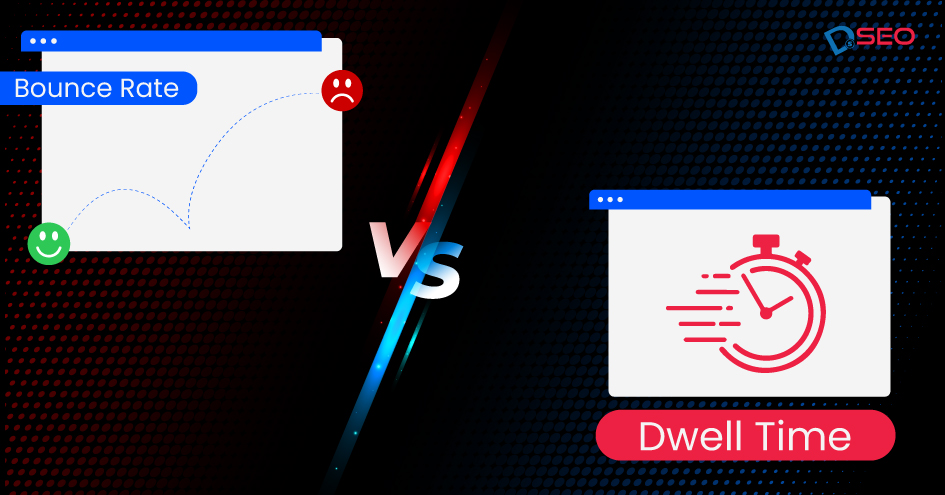
Guaranteed Results: How Real Estate SEO Can Transform Your Business
July 5, 2023 / SEARCH ENGINE OPTIMIZATION
Almost all homebuyers and sellers search the internet for properties and real estate services; the significance of search engine optimization (SEO) in the real estate industry cannot be overstated. As a real estate professional, leveraging SEO’s power can transform your business and propel it to new heights.
So, what exactly is real estate SEO, and why is it essential for your success? Real estate SEO involves optimizing your website and online presence to rank higher in search engine results when potential clients search for relevant keywords and phrases.
By implementing effective real estate SEO strategies, you can significantly increase your online visibility, drive more targeted traffic to your website, and ultimately generate more leads and conversions. It allows you to connect with potential buyers and sellers at the exact moment when they are actively seeking real estate services.
In the following sections, we will delve into real estate SEO basics, providing valuable insights and actionable tips to help you navigate this dynamic landscape. Let’s dive in and unlock the transformative power of real estate SEO together.
Understanding the Basics of Real Estate SEO
Definition and Key Concepts:
Real Estate SEO refers to optimizing real estate websites and online presence to improve their visibility and rankings in search engine results. The goal is to attract more targeted organic traffic and generate leads. Key concepts include keyword research, on-page optimization, backlink building, and local SEO.
How Search Engines Work:
Search engines like Google include complex algorithms to study and rank websites on the basis of various factors. These factors include website relevance, content quality, user experience, and authority. The algorithms constantly evolve, aiming to provide users with the most relevant and valuable search results.
The Role of Keywords:
Keywords play a crucial role in real estate SEO. People type these words or phrases into search engines when looking for real estate information or services. Identifying and incorporating relevant keywords into website content, meta tags, and descriptions is essential. By optimizing for the right keywords, real estate professionals can increase their chances of appearing in search results and attracting qualified traffic.
On-Page Optimization for Real Estate Websites
Optimizing Meta Tags, Titles, and Descriptions:
Meta tags, titles, and descriptions are crucial elements of on-page optimization. Meta tags gives the information about a web page to search engines. Optimizing meta tags involves including relevant keywords and writing concise, descriptive tags that accurately represent the content. Titles should be attention-grabbing, keyword-rich, and relevant to the page. Descriptions summarize the page content and should entice users to click through from the search results.
Creating SEO-Friendly URL Structures:
URL structures play a role in search engine rankings and user experience. An SEO-friendly URL must include descriptive, concise, and relevant keywords. Avoid using numbers or irrelevant characters in URLs; for real estate websites, including location-based keywords can be beneficial.
Incorporating Keywords in Page Content and Headings:
Content is a critical component of on-page optimization. Incorporating relevant keywords naturally and strategically throughout the content is essential. Aim to provide valuable, informative, and engaging content that satisfies user intent. Use heading tags (H1, H2, etc.) to structure the content and include keywords in the headings. However, ensure the headings make sense and flow naturally within the content.
Building a Strong Backlink Profile
The Importance of Backlinks:
Backlinks, also known as inbound links, are links from other websites that point to your real estate website. They are crucial for real estate SEO as search engines consider their votes of confidence and authority. High-quality backlinks can improve your website’s visibility, credibility, and rankings in search engine results. Each backlink acts as a virtual endorsement, indicating that your website is reputable and valuable to search engines.
Strategies for Acquiring High-Quality Backlinks:
Acquiring high-quality backlinks requires a strategic approach. One effective strategy is to create valuable and shareable content that naturally attracts links from other websites. This could include informative blog posts, guides, or market reports relevant to the real estate industry. Another strategy is collaborating with industry influencers or experts who can link to your website from their authoritative platforms.
Guest Blogging, Outreach, and Link Building Techniques:
Guest blogging includes writing articles for other websites for a backlink to your website. This strategy allows you to showcase your expertise and expand your reach to new audiences. Outreach involves contacting website owners or bloggers in your industry to request backlinks or collaboration opportunities. Additionally, various link-building techniques, such as broken link building, resource page link building, and social media promotion, can help you acquire valuable backlinks.
Creating Engaging and Optimized Content
Developing High-Quality, Relevant Content:
High-quality content is the backbone of successful real estate SEO. It should provide value, answer questions, and address the needs of your target audience. Develop informative blog posts, articles, and guides relevant to your real estate niche. Consider home-buying tips, neighborhood guides, market trends, or mortgage advice. By offering valuable content, you establish yourself as an industry authority and attract readers and search engines.
Incorporating Keywords Naturally:
While creating content, it’s crucial to incorporate keywords naturally. Identify relevant keywords related to your content and strategically place them throughout your articles or blog posts. However, don’t stuff keyword which can negatively impact the user experience and readability. Focus on providing informative and engaging content that flows naturally while incorporating keywords to enhance its optimization.
Using Multimedia and Visuals to Enhance Engagement:
Incorporating multimedia and visuals in your content can significantly enhance engagement and user experience. Utilize high-quality images, videos, infographics, and interactive elements to make your content visually appealing and informative. Visuals can showcase properties, provide visual explanations, and break up the text to make it more digestible for readers. Optimize multimedia elements with descriptive alt tags and captions that include relevant keywords.
Optimizing for Local SEO in the Real Estate Industry
Importance of Local SEO:
Local SEO is paramount for real estate professionals as it helps them target potential clients in specific geographic areas. With homebuyers and sellers often searching for properties in their local vicinity, optimizing for local SEO ensures that your real estate business appears prominently in local search results. It lets you connect with individuals seeking properties or real estate services in your target location.
Optimizing Google My Business and Local Directories:
One crucial aspect of local SEO is optimizing your Google My Business (GMB) listing and other local directories. Ensure your GMB profile is complete and accurate, including essential information such as your business name, address, phone number, and website URL. Encourage satisfied clients to leave positive reviews, enhancing your visibility and reputation. Additionally, list your business on other relevant local directories such as Yelp, Zillow, or Realtor.com to increase your online presence in local searches.
Leveraging Online Reviews and Reputation Management:
Online reviews play a significant role in local SEO for real estate professionals. Positive reviews influence potential clients and improve your search engine rankings. Encourage satisfied clients to leave reviews on platforms such as Google, Facebook, or industry-specific review sites. Respond quickly and professionally to both positive and negative reviews to portray your commitment toward customer satisfaction. Reputation management is crucial in maintaining a positive online image, as it builds trust and credibility among potential clients.
Conclusion:
Implementing effective real estate SEO strategies is paramount for success in the digital realm. By optimizing your website, incorporating relevant keywords, building a solid backlink profile, and focusing on local SEO, you can enhance your online visibility and attract targeted leads. For tailored real estate SEO servicesthat will help you quickly achieve your goals, trust Deftsoft. Our experienced team of real estate SEO experts utilizes advanced methods to drive more traffic and generate qualified leads. Let us bridge the gap between home buyers and sellers through the power of real estate SEO.









